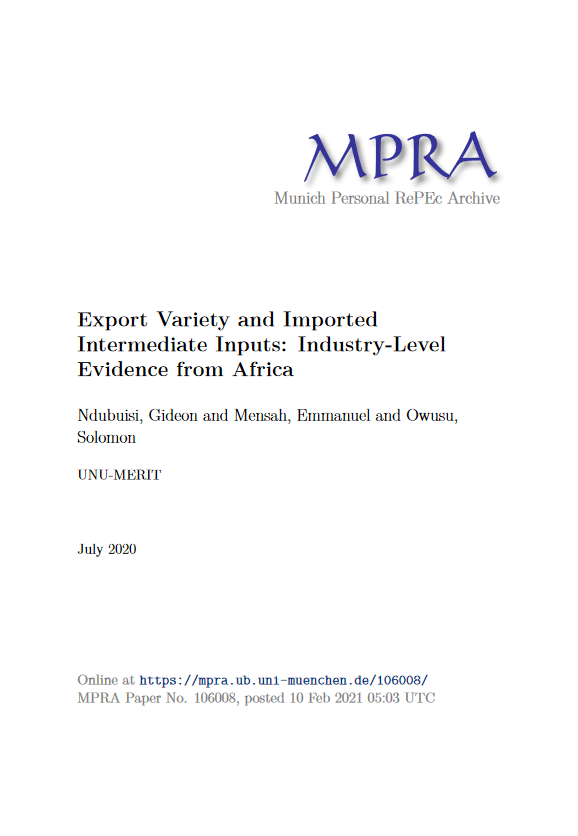︎

Gideon Ndubuisi
Delft University of Technology
Gideon Ndubuisi is Assistant Professor at the Delft University of Technology, and Affiliated Researcher at the German Institute of Development and Sustainability/Deutsches Institut für Entwicklungspolitik (IDOS/DIE). Previously, Gideon was employed as Research Economist at the IDOS. He has a BSc. in Economics from Nnamdi Azikiwe University Awka (Nigeria), MSc. in Economics and Institutions from Philipps-University Marburg (Germany), and PhD in Economics from Maastricht University (Netherlands). Gideon has worked and consulted for different institutions such as the German Institute for Economic Research (Germany), Institute for World Economy (Germany), European Center for Economic Research (Germany), United Nations Industrial Development Organization (Austria), World Bank (USA), UNU-MERIT (Netherland), African Development Bank (Côte d'Ivoire), European Commission (Belgium), and NODAC Consulting (Nigeria). His primary research interests include Global Value Chains and Trade, Institutions, Tax Morale, Environment and Clean Energy Market, and Firm Performance and Structural Transformation.
MORE ABOUT GIDEON NDUBUISI >Mar 15, 2024
Gideon Ndubuisi and Solomon Owusu
Global Value Chains, Job Creation, and Job Destruction among Firms in South Africa
Extant studies suggest that firms’ engagement in global value chain (GVC) trade is associated with productivity gains that result from the continual reallocation of resources to their most productive use. This reallocation generates benefits for transitioning workers but also incurs costs for work...
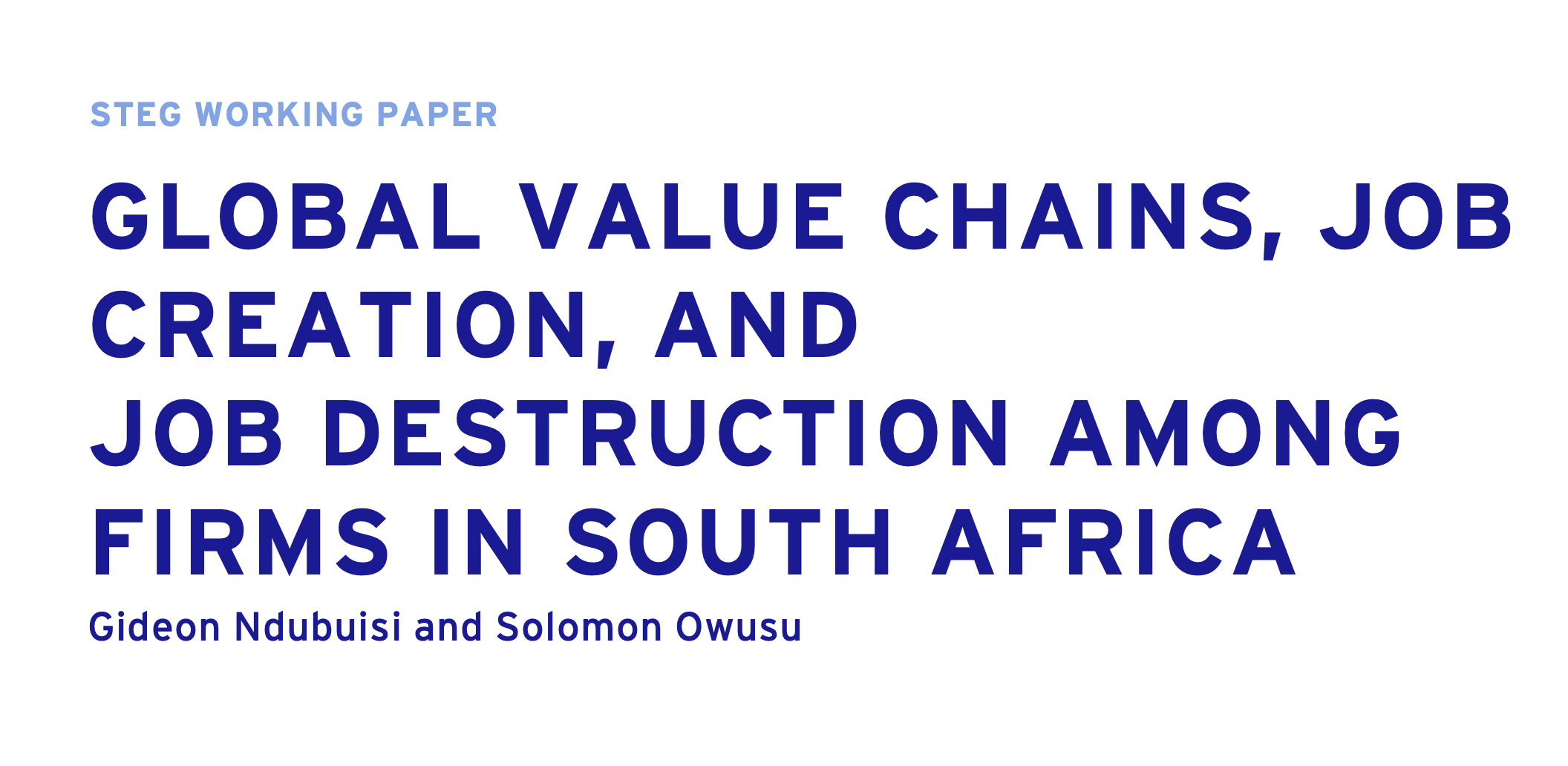
Mar 15, 2024
Caio Torres Mazzi, Gideon Ndubuisi, Elvis Avendo
Learning-by-exporting in South Africa: The influence of global value chain (GVC) participation and technological capability
Using the South African Revenue Service and National Treasury firm-level panel data for 2009–2017, this paper investigates how trade related to the global value chain (GVC) affects the performance of manufacturing firms in South Africa. The paper uses extant classifications of internationally trad...
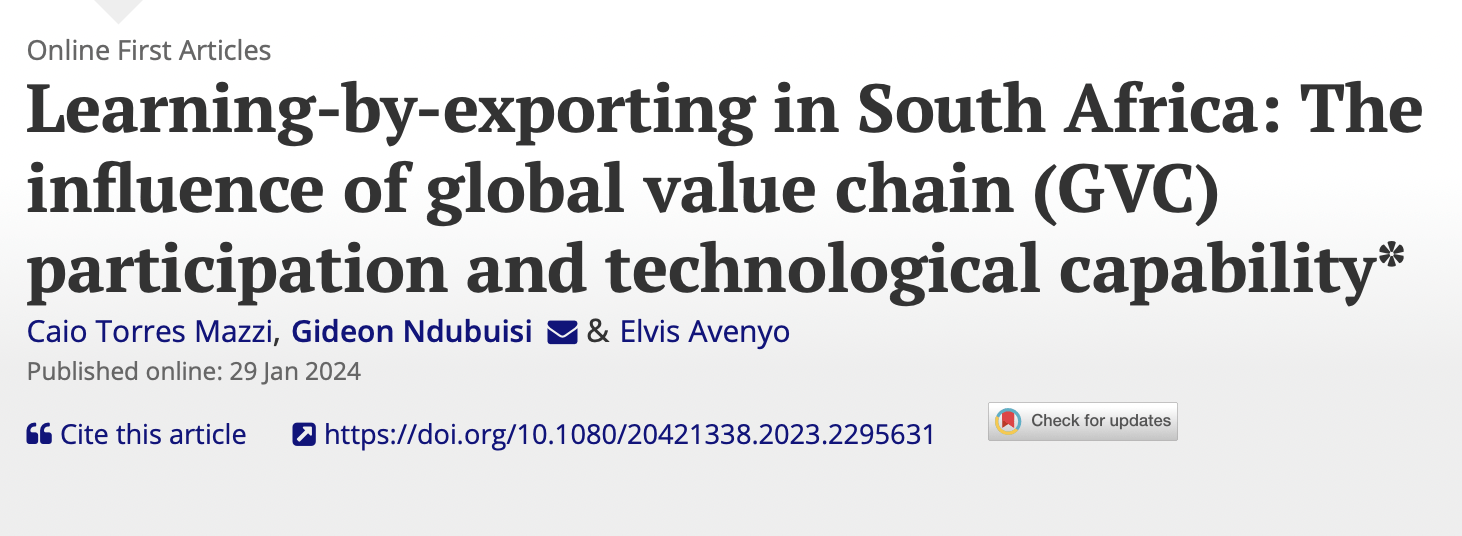
Apr 5, 2022
Sustainable Global Supply Chains Report 2022
Global supply chains affect the economy, the environment and social welfare in many ways. Worldwide, economies are experiencing global supply shortages today, affecting key industries such as automotive and consumer electronics as well as vaccine and medical supplies industries. These preoccupy poli...

Jan 1, 2021
Gideon Ndubuisi, Solomon Owusu
How important is GVC Participation to Export Upgrading
Abstract
Exporting higher‐quality and complex products are deemed pathways to economic growth and development. However, producing such products are knowledge‐intensive and require quality intermediate inputs and advanced technologies. Integration into global trade networks is increasingly argue...
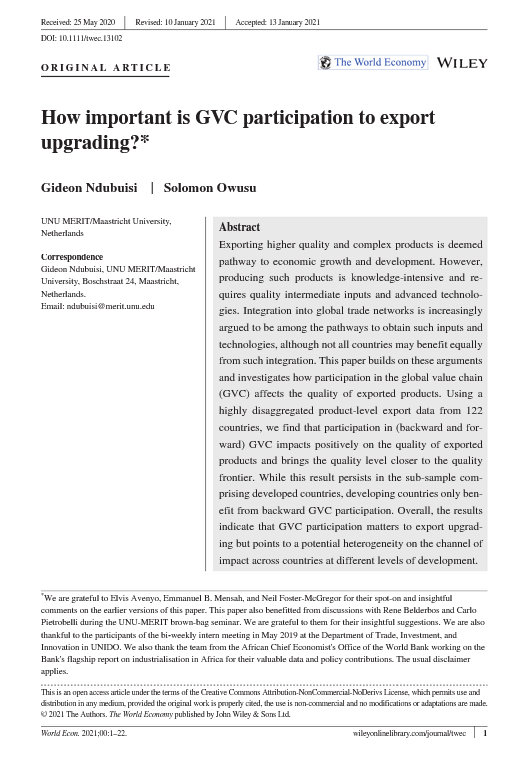
Jan 1, 2020
Caio Torres Mazzi, Gideon Ndubuisi, and Elvis Korku Avenyo
Exporters and global value chain participation: Firm-level evidence from South Africa
Using the South African Revenue Service and National Treasury firm-level panel data for 2009-17, this paper investigates how global value chain-related trade affects the export performance of manufacturing firms in South Africa. In particular, the paper uses extant classifications of internationally...
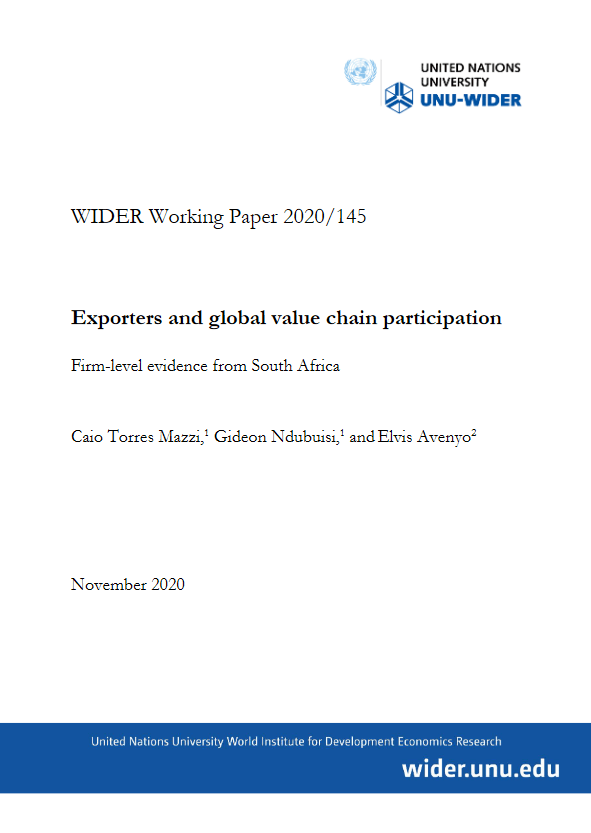
Jan 1, 2020
Gideon Ndubuisi, Emmanuel Mensah and Solomon Owusu
Export Variety and Imported Intermediate Inputs: Industry-Level Evidence from Africa
Imported intermediate inputs offer access to lower-priced, higher quality, and a wider variety of inputs that can increase the possibility of producing and selling more diversified products in foreign markets. In this paper, we examine this relationship using a novel manufacturing industry-level dat...
